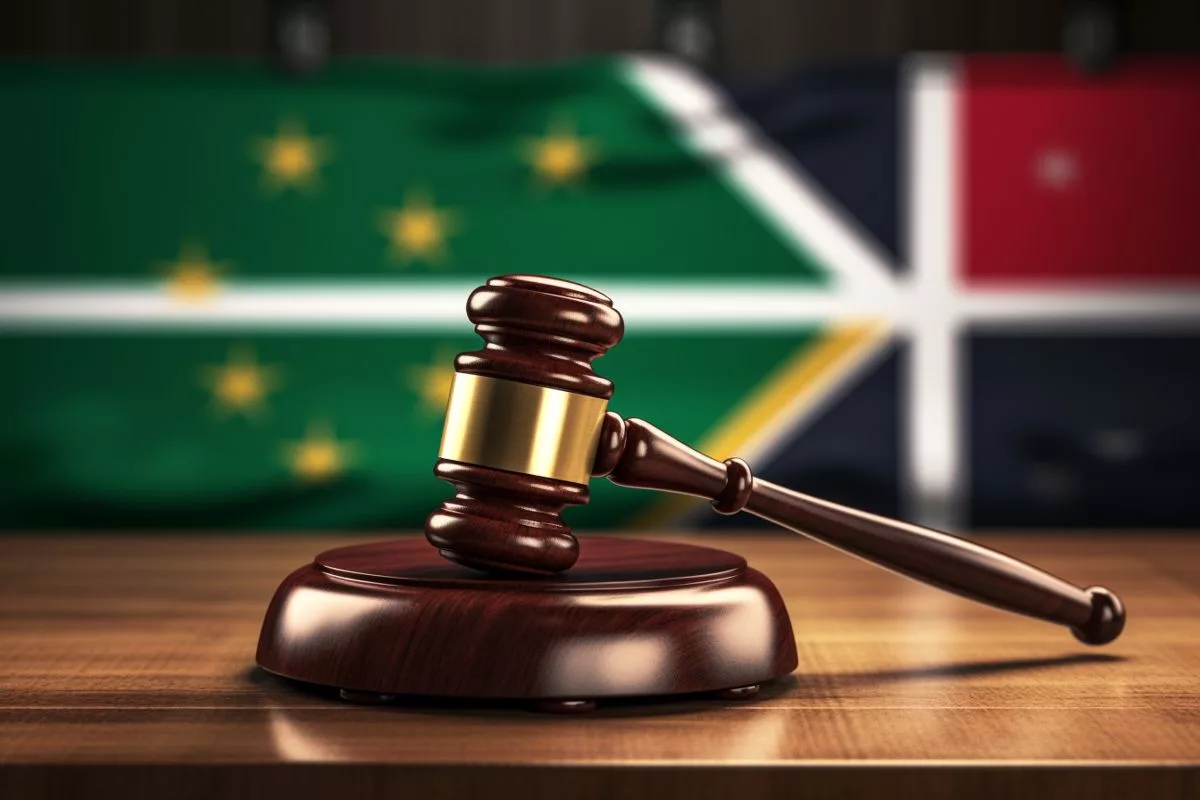Chief Justice Mogoeng Mogoeng has ended his ten-year tenure and received praise from President Cyril Ramaphosa and Acting Chief Justice Raymond Zondo for his contributions to South Africa’s judiciary and democratic institutions. Ramaphosa commended Mogoeng’s leadership and role in preserving the separation of powers, while Zondo highlighted Mogoeng’s ethical leadership and initiatives that advanced legal reasoning. Mogoeng’s commitment to ethical leadership and opposition to corruption defined his legacy and left a lasting impact on South Africa’s judicial system.
Chief Justice Mogoeng Mogoeng, a prominent figure in South Africa’s legal system, has recently ended his tenure. His decade-long service has been celebrated by President Cyril Ramaphosa and Acting Chief Justice Raymond Zondo, who have commended his contributions to the judiciary and the country.
President Ramaphosa’s Words of Admiration
President Cyril Ramaphosa has praised Chief Justice Mogoeng’s leadership, which has increased international respect for South African legal reasoning and strengthened the democratic institutions of the country. Ramaphosa has acknowledged the Chief Justice’s crucial role in preserving the doctrine of separation of powers and his invaluable input during the nation’s democratic challenges. He wished Mogoeng the best in his future endeavors, while still encouraging him to continue his public discourse.
Acting Chief Justice Zondo’s Encomium
Acting Chief Justice Raymond Zondo has also rendered a tribute to Chief Justice Mogoeng’s ten-year term of service. Zondo commended Mogoeng’s fearless, judicious, and ethical leadership during some of the most trying phases in the country’s constitutional democracy. He highlighted Mogoeng’s significant contributions to legal reasoning and his initiatives, such as the South African Judicial Education Institute, Annual Judiciary Report, and centralization of Superior Courts’ administration.
The Impact of Chief Justice Mogoeng
Chief Justice Mogoeng’s term of office was met with skepticism, but it went on to usher in a phase of impressive modification and fortification of the judiciary. His unwavering commitment to ethical leadership and opposition to corruption became hallmarks of his administration. Under his stewardship, the judiciary experienced notable advancements, such as the creation of the South African Judicial Education Institute, the launch of the Annual Judiciary Report, and progress in the 2030 Vision for the Judiciary.
The Legacy of Chief Justice Mogoeng
The tributes from President Ramaphosa and Acting Chief Justice Zondo acknowledge not only the professional accomplishments of Chief Justice Mogoeng Mogoeng, but also his personal dedication to justice and democratic principles. As he exits his post, his legacy manifests as a testament to the robustness and resilience of South Africa’s judicial system. Although his departure signifies the end of an era, his influence and contributions will undoubtedly continue to shape the country’s judicial landscape for the foreseeable future.
1. Who is Chief Justice Mogoeng Mogoeng?
Chief Justice Mogoeng Mogoeng is a prominent figure in South Africa’s legal system who recently ended his ten-year tenure. He has received praise from both President Cyril Ramaphosa and Acting Chief Justice Raymond Zondo for his contributions to the judiciary and the country.
2. What did President Cyril Ramaphosa say about Chief Justice Mogoeng’s leadership?
President Cyril Ramaphosa praised Chief Justice Mogoeng’s leadership, which has increased international respect for South African legal reasoning and strengthened the democratic institutions of the country. Ramaphosa acknowledged the Chief Justice’s crucial role in preserving the doctrine of separation of powers and his invaluable input during the nation’s democratic challenges.
3. What initiatives did Chief Justice Mogoeng introduce during his tenure?
Chief Justice Mogoeng introduced several initiatives during his tenure, such as the creation of the South African Judicial Education Institute, the launch of the Annual Judiciary Report, and progress in the 2030 Vision for the Judiciary.
4. What was Chief Justice Mogoeng’s legacy?
Chief Justice Mogoeng’s unwavering commitment to ethical leadership and opposition to corruption became hallmarks of his administration. His legacy manifests as a testament to the robustness and resilience of South Africa’s judicial system.
5. Will Chief Justice Mogoeng’s influence continue in South Africa’s judicial landscape?
Although Chief Justice Mogoeng has left his post, his influence and contributions will undoubtedly continue to shape the country’s judicial landscape for the foreseeable future.








